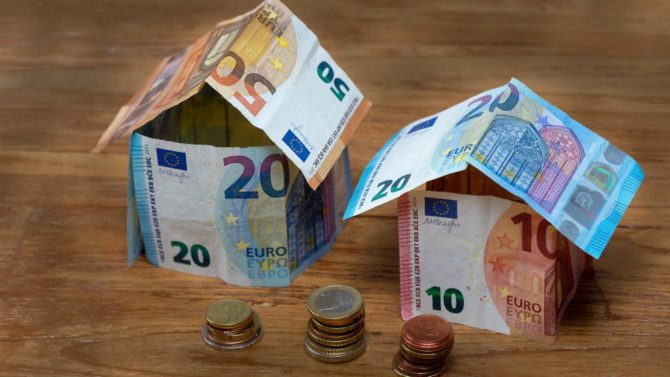How will French taxes change for UK nationals after Brexit?

After the Brexit transition period, the amount of capital gains tax you pay on the sale of a French holiday home and the way you pay it may change

The UK is currently in a Brexit transition period, due to end on 31 December 2020. It is not yet clear whether the UK’s departure will be preceded by a trade agreement, or whether the departure will be without a deal. The result of those negotiations may have some bearing on procedures to be followed when a British national not resident in France comes to sell a French house. Here’s a look at how the tax implications of selling may be affected by the ongoing trade talks. Current set-up
When selling a home that is not your main residence, you will potentially be liable to pay capital gains tax – a tax on the profit you make. The allowances available in France to reduce the taxable profit include the notaire’s fees and
duties paid when you acquired the property, the cost of agency commission if you paid it, and the cost of works you’ve carried out to the property. For expenses such as the notaire’s fees and duties, or works carried out to the property, you can usually take a standard pre-agreed amount if you are not able to provide documentary evidence that you actually paid more.
The forfeit amounts – 7.5% for notaire’s fees and 15% for works (provided you have owned the property for at least five years) – are actually quite generous. However, if you have carried out substantial renovation works to the house, you will want to claim all of the costs of this. For that you will need to produce all written estimates, all invoices, and proofs of payment. Thus, your bookkeeping for works carried out must be meticulous.
Uplifting value
In addition to these allowances, it is possible to add an uplift to the original acquisition value, which increases the longer you own the property. That results in reducing the overall taxable profit, so reducing the tax. So, if you have owned the property for 30 years, there will be no French capital gains tax or social charge contribution to pay.
Double Tax Treaty
That’s only part of the picture in relation to capital gains tax. If you are UK tax resident, you will also have to declare for capital gains tax in the UK. There is a double tax treaty between the UK and France, which means that you would not have to pay the same tax twice. It would work by allowing you to deduct from your UK tax return any capital gains tax already paid in France.
We can say with some certainty that this taxation arrangement will not change due to Brexit. This is because the double tax treaty dates from 1963 – a whole decade before the UK joined the European Union – and it will continue in the same way going forwards.
One downside, though, is that if you qualify for a full exemption to French capital gains tax, there would not be any tax that you could use to offset the UK bill. Since the UK does not apply the same process of indexation to increase the original acquisition value, there could be a large UK CGT bill. So if you have owned your French house for more than 30 years, you will not have to pay any CGT in France, but you will still have to declare for the full amount in the UK.
__________________________________________________________
You might also like:
Everything you need to know about French notaire’s fees
14 things to do when you inherit a French property
__________________________________________________________
The Brexit Effect
So what impact might Brexit have on the sale of a property? First of all, the rates of the overall tax will be affected. In part this is because there is a reduction for the ‘social charges’ element of capital gains tax for people who live in another EU country. Under EU law, people who are tax-resident in an EU state outside France and already paying into their country’s healthcare system (e.g. the NHS) do not have to also pay social security contributions in France.
During the Brexit transition period, UK tax residents can continue to benefit from that allowance. However, depending upon the result of the UK’s negotiations with the EU, this allowance may be lost, and it looks likely that a departure with no-deal would result in higher capital gains tax bills for sellers.
Representative requirement
Post-Brexit, it is also likely that sellers will need to rely on the services of a fiscal representative if they are UK tax resident and are selling a property worth €150,000 or more. This is a requirement imposed by the French tax office, which did apply previously but which was then held to be unnecessary for residents of EU countries outside of France – which up until now has included the UK.
The basis of this is that the French tax office retains the right to review any sale transaction for a number of years after the sale completes.If the tax office reviews a sale after it has completed and comes to the conclusion that the tax paid was wrong, they are entitled to seek a further contribution from the seller.
However, where the seller is resident outside of the EU, the tax office would not seek payment from them. Rather, they will require the intervention of a French-resident person upon whom they can call to make up the difference. In practice, there are a number of specialist companies that will fulfil this role. They will, of course, look to charge for the service and will insist on scrutinising very carefully the entire tax declaration, in an effort to limit their own risk. Their intervention is likely to add a noticeable extra cost to the sale. That cost would be deductible against the tax, yet it would reduce the ‘profit’.
Matthew Cameron is a Partner and Head of French legal services at Ashtons Legal
Share to: Facebook Twitter LinkedIn Email


